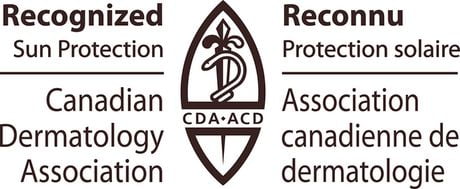


Therefore, for babies under 6 months of age, it is recommended to avoid sun exposure. Keep in mind that your baby’s skin is thin and fragile, and can burn easily. Some clothing and hats made with UPF fabric offer anti-UV protection.Ĭan I apply sunscreen to my infant’s skin?

Be sure to protect their head, face, neck, and ears with a wide-brimmed hat. Dress your baby in light, loose-fitting clothes that cover their arms and legs. Long pieces of clothing made from tightly woven fabrics offers better sun protection than even the very best sunscreen.
#SUNSCREEN FOR SENSITIVE SKIN BABIES WINDOWS#
Never leave your infant in a parked vehicle, even if it is parked in the shade or with the windows down. So even if your baby is beneath a parasol at the beach, their skin will still be indirectly exposed to the sun. But be mindful of the immediate surroundings, as surfaces like water, sand, snow, and concrete reflect sunlight. Keep your baby in the shade under a tree, a sun umbrella, a canopy, or their stroller sun cover.

It is recommended you avoid exposing your infant’s skin to direct sun between 11 a.m. The sun’s rays are at their strongest between noon and 2 p.m. Depending on the UV index, you and your baby can experience sunburn in as little as 15 minutes of exposure without protection. They can’t tell you when they’re too hot or when the sun is too strong for them, and they can’t get out of the sun and into a shady spot on their own. With all that guidance in mind, we’ve selected the best sunscreens for sensitive skin, based on dermatologists’ recommendations and glowing reviews from SELF’s Healthy Beauty Award testers.How can I provide maximum sun protection for my baby?īabies are entirely reliant on adults to protect them from the sun. Just rub a quarter-size thin layer to the inside of your forearm, reapply at least once (follow the reapplication instructions on the product’s label), and watch for reactions like itching, swelling, inflammation, or a rash, which can indicate it’s not the right formula for you.
#SUNSCREEN FOR SENSITIVE SKIN BABIES PATCH#
Rose.Įven once you find a sunscreen that ticks these boxes and appeals to your personal preferences, it’s still a good idea to patch test it, Shari Sperling, DO, board-certified dermatologist and founder of Sperling Dermatology in Florham Park, New Jersey, tells SELF. Creams, especially ones that contain added moisturizing ingredients like oils, will feel gentler and more soothing on sensitive skin, according to Dr. Specifically, she notes that sprays usually contain more alcohol than heavier products like lotions, which can make them more drying-and, in turn, potentially more irritating. The formulation of a sunscreen can also contribute to how it affects your skin, Dr. A “fragrance-free” product can get away with having ingredients like certain essential oils if they’re not defined as a scent, so make sure to scan the ingredients label carefully for potential irritants. Though you can look for products that are “fragrance-free,” this labeling can sometimes be misleading. Ingredients under the “fragrance” umbrella are common allergens or irritants that can cause or exacerbate a bad reaction to a new product, and they go by many names. Shokeen says it helps to look for products with the active ingredient avobenzone, which is generally gentler and less likely to irritate sensitive skin than oxybenzone or octinoxate.įinally, watch out for added fragrance, Blair Murphy Rose, MD, a board-certified dermatologist at Laser & Skin Surgery Center of NY in New York City, tells SELF. That said, you don’t have to count out all chemical options, if that’s your preferred type. Zinc oxide and titanium dioxide are the two most common active ingredients in mineral sunscreens and they’re considered non-irritating. Also known as physical sunscreens, these products actually block UV rays from penetrating the skin when applied properly, as SELF previously reported. They may cause stinging, redness, and other signs of an allergic reaction, especially among people with certain skin conditions, including rosacea and eczema.Īlternatively, there are mineral sunscreens, which Dr. Chemical sunscreens (which work by absorbing and dissipating the heat from the sun’s ultraviolet (UV) rays) contain active ingredients, like oxybenzone or octinoxate, that can be harsh on the skin, Dr.


 0 kommentar(er)
0 kommentar(er)
